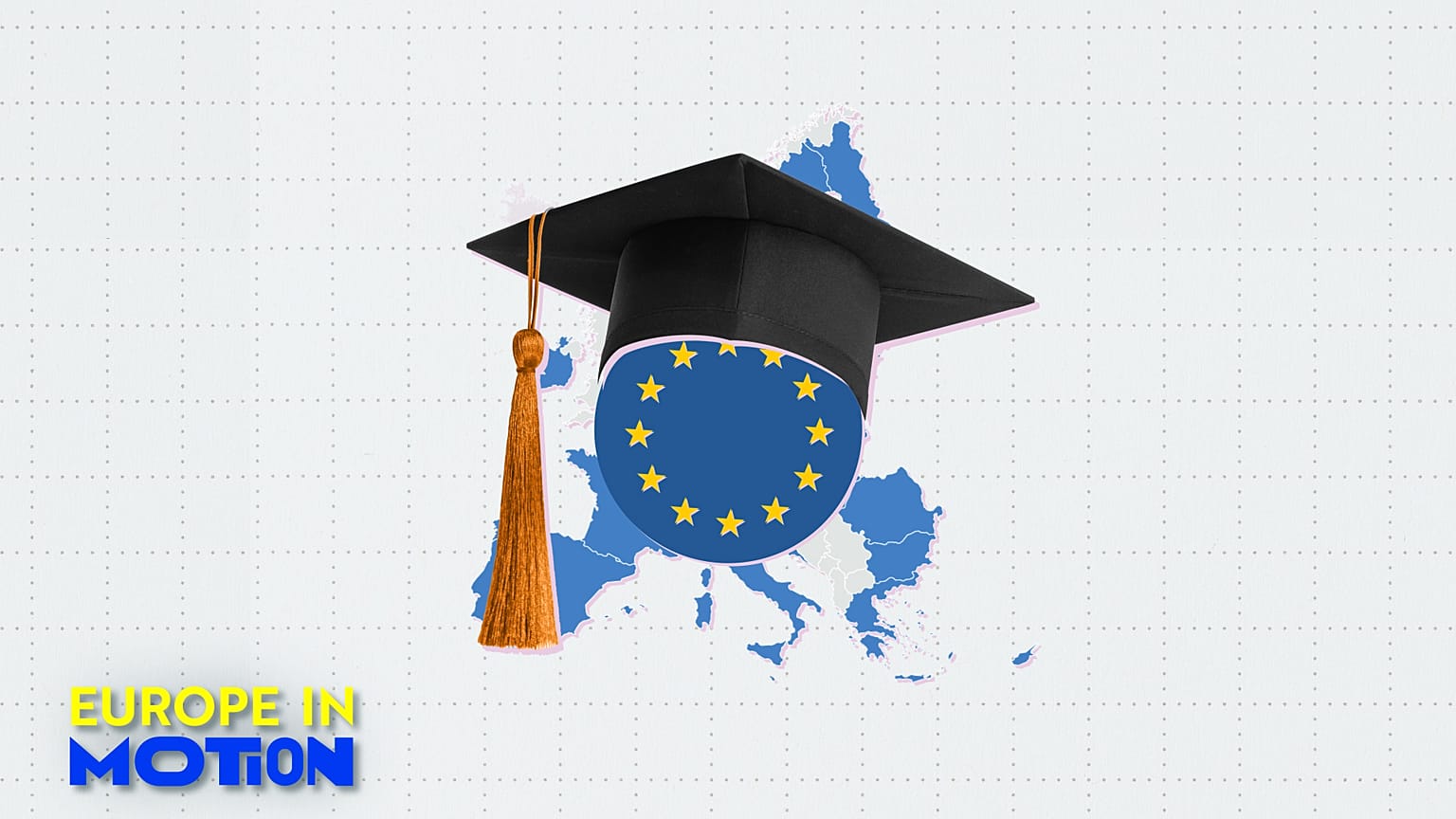Where do most young Europeans have a higher education degree? A new OECD report reveals sharp contrasts across the EU, with Ireland at the top and Italy at the bottom.
In Ireland, two in three people aged 25 to 34 held a university degree, such as a bachelor's, master's or PhD degree, in 2024. This is followed by Luxembourg, at 65%, and Lithuania, at 58%.
By contrast, Czechia recorded the fewest young adults with a degree, at 33%, followed by Hungary and Italy, both at 32%.
This is what the latest Education at a glance report by the Organisation for Economic Co-operation and Development (OECD) shows.
The report also highlights that young people’s education level remains closely tied to that of their parents.
In all countries, children of disadvantaged backgrounds are far less likely to go to university or college than those from more advantaged backgrounds.
The gap between the share of young adults with parents holding a university degree (70%) and that of young adults whose parents don’t have one (49%) is the lowest in Denmark.
On the other hand, this gap is the widest in Poland (79% among young adults whose parents have an degree and 11% among those whose parents don't).
Higher levels of education are strongly linked to increased employment rates, higher earnings and better health.















